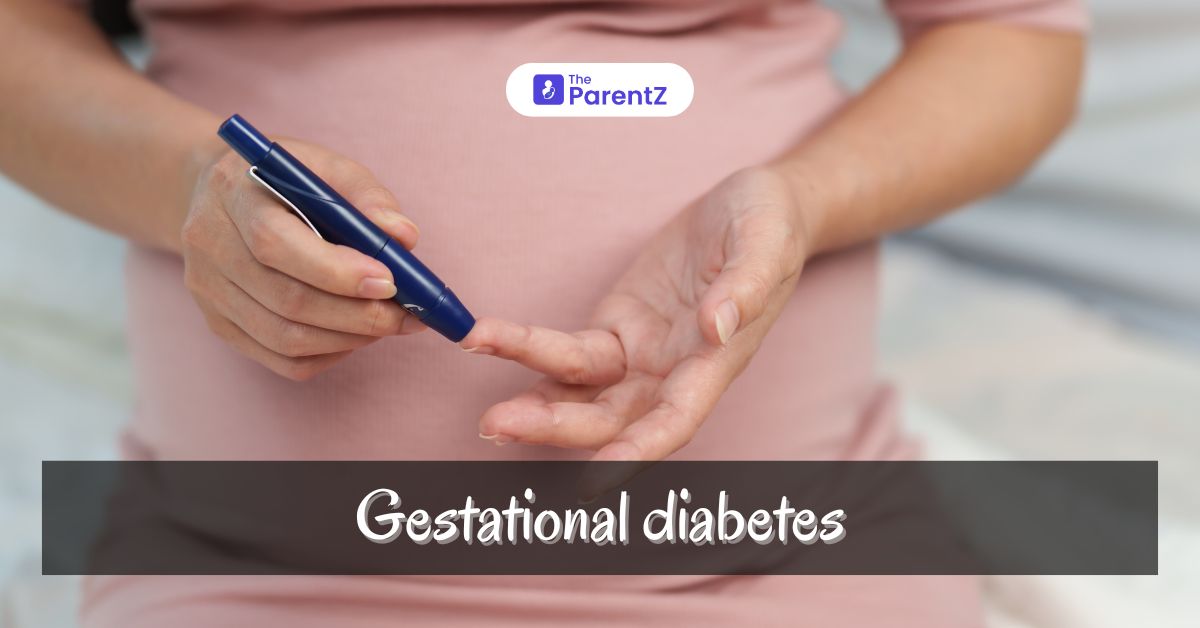What is gestational diabetes?
Gestational diabetes refers to a type of diabetes which appears during the pregnancy itself and resolves after delivery. It effects how the body is utilising sugar and there is a high level of sugar present in the blood. There may be noticed symptoms which are noticed except for an increase in thirst, tiredness and increased frequency of peeing. It is diagnosed only after blood tests and usually appears between 24 to 28 weeks of pregnancy. Since it is a common problem of pregnancy which can cause complications, testing for diabetes is included in the routine tests performed during antenatal visits of pregnancy.
Is gestational diabetes different from diabetes type 1/2 ?
Diabetes type 1 and 2 develop because of a lack of insulin in the body or because the insulin produced is not being utilised properly. Diabetes type 1 and 2 can appear in any age and is a lifelong disease. They are managed with the modification of diet, lifestyle changes, medication and sometimes insulin also. On the other hand, gestational diabetes develops only during pregnancy, between 24 to 28 weeks due to hormonal changes in the body which affect how the sugar is being utilised. It resolves on it’s own in a few days post delivery.
Who is at risk for developing gestational diabetes?
There are certain factors which put some women at a greater risk for developing gestational diabetes. These include:
- being overweight or obese
- having heart problems
- having hypertension
- having gestational diabetes in a previous pregnancy
- having a family history of gestational diabetes
- being in the pre diabetic or in the higher sugar range
- having polycystic ovarian syndrome
- a previous baby over 4.1 kg being born
- belonging to the Hispanic and the darker races
What problems does gestational diabetes cause for the baby?
Gestation diabetes can lead to some complications for the newborn baby and if untreated can even lead to a stillborn. The complications of newborn include:
- The baby may be born at a higher birth weight and grow large for it’s gestational age. Large babies are more likely to get stuck in the birth canal and have a higher risk of birth injuries.
- There is a higher chance of the baby being born prematurely.
- The baby has a chance of having hypoglycemia shortly after birth.
- There is an increased risk of the baby having serious respiratory problems after birth.
- The baby is at a higher risk for development of a obesity and diabetes later in life.
Can gestational diabetes go away during pregnancy?
No, gestational diabetes will not go away during pregnancy. As the name suggests, it is caused due to pregnancy. It should be noted that gestational diabetes resolves shortly after birth. It is also important to keep in mind that if you develop gestational diabetes, you are more likely to develop diabetes type 2 in the future and regular screening is advised.
How to manage gestational diabetes effectively?
You should manage gestational diabetes to ensure a complication free delivery and a healthy newborn. Some tips to be kept in mind are:
- Consult your health care provider and follow all the medications prescribe as per schedule.
- Do not miss any follow up appointments with your doctor.
- Ensure regular blood check up for screening of sugar levels. Monitoring of sugar levels should be done at home as well. Prepare a chart of your sugar levels through the day.
- Maintain a balanced and healthy diet.
- Ensure that you get proper sleep.
- Stay active during the pregnancy but avoid heavy or strenuous exercise.
- Your newborn may need to be kept in observation to ensure that if any complications develop, they are managed according.





Be the first one to comment on this story.